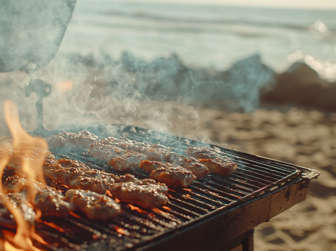There’s nothing quite as satisfying as getting behind the wheel of your car after a long and stressful year and hitting the open road. Pure bliss! Or pure dread, it all comes down to how well prepared you are for a long road trip. We’re talking about car packing specifically!
If you’ve been on a road trip before, you’ll know from experience that the inside of the car can get cluttered, messy and disorganized pretty easily. But packing your car for your trip doesn’t have to be overwhelming. Whether you’ll be driving for two days or two hours, these road trip tips will come in handy:

Don’t rush it
Packing your car, the night before you head out on your road trip is the best way to ensure you can wake up and get going without any delays.
Before your trip, make a list of everything you need to take along. Once it’s packed into bags – check it off your list. That way, when you are ready to start packing the car, you aren’t stressing about whether or not you’ve packed those must have trip items!

Assess your luggage situations beforehand
Now that you’re ready to put all those bags into the car, try and get everyone who is traveling with you to bring all their packed luggage to the driveway. This will give you chance to asses the luggage situation beforehand.

Use space wisely
Start with the bigger, heaver items; things like camping fridges, cooler boxes, bigger suitcases, etc. Then, pretend you’re playing a game of Tetris; fit the rest of your luggage into the boot, finding suitable slots for the various sized bags. This trick helps you fill in any empty spaces and maximises the space you have.
SAFETY TIP: Make sure you’ve packed as much luggage into actual bags (like duffle bags or kit bags etc) so that you don’t have any loose items flying around.
The very last items that should be packed into the car should be those items that you may need along the way. The last thing you want is to be unpacking your entire life story during your pit stop at the garage to find that cozy jersey sitting right at the bottom.

Be street smart
While stuffing your car full of your holiday essentials, remember to always be prepared in case of an emergency.
Make sure your emergency car tools (such as your jumper cables, triangle, tyre kit, etc.) as well as your first aid kit are all easily accessible. We know a lot of cars keep their spare tyre under the boot, in which case unpacking your entire boot is necessary to get to it. But, imagine having to unpack your entire boot just to get your emergency triangle or a headache tablet for your passengers.
Read more: Safety items you should always have in your car

Be space smart
No matter how much stuff you need to take along, never over pack your car to the extent that it makes it unsafe or affects your visibility.
If you simply can’t fit all your passengers and their luggage into a car safely consider hiring a trailer or roof box to ensure a comfortable and safe trip.

Pack enough snacks
Snacks are probably one of the most important “necessities” to have on a road trip. Before you head out, make sure you’ve packed enough snacks for the entire trip.
To save space inside the car, section your road trip snacks into the different legs of your trip and keep the rest packed away in the boot. Keep your drinks cool by placing them in a cooler bag or mini car fridge. Also, don’t forget an empty packet for your rubbish.

Travel in comfort
Besides choosing comfortable clothing to travel in, it’s wise for you and your passengers to bring along a few comfort items that you may need during the trip.
Things like: A travel pillow, a blanket, an oversized jumper and socks are all a good idea. Another suggestion is to bring along a towel. If it’s a really hot trip and you’ve got leather seats in your car, you’ll be a lot more comfortable sitting on top of a beach towel (which can also then be used during your holiday).
If you don’t need these items straight away, pack them in the boot, on top of your luggage and somewhere that will be quick and easy to access.
Read more:
Shop for a new insurance quote every year
Ineos Grenadier: A powerful new SUV on SA’s roads


